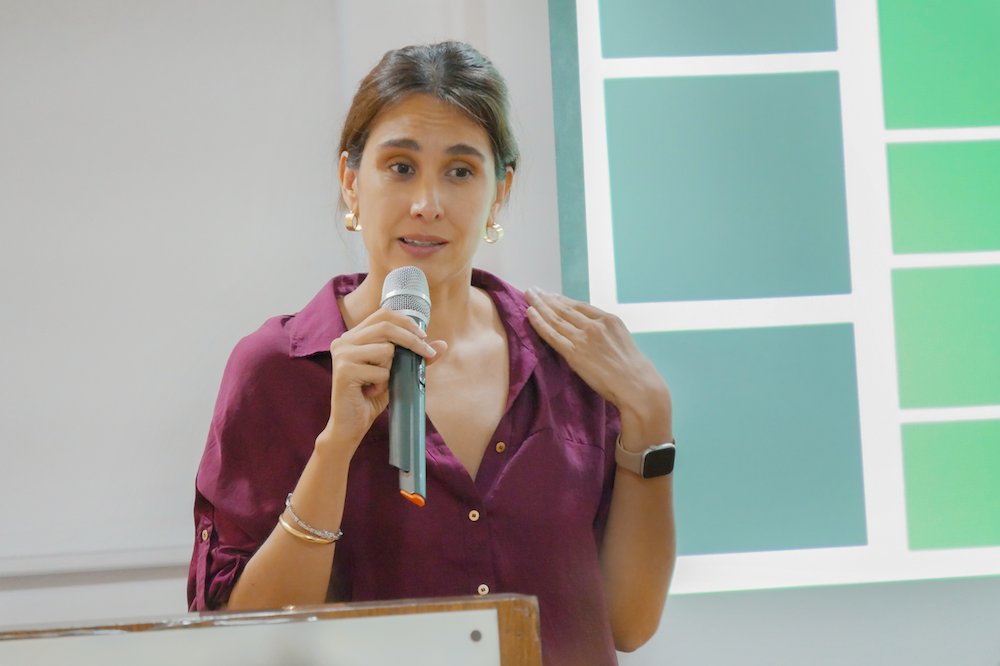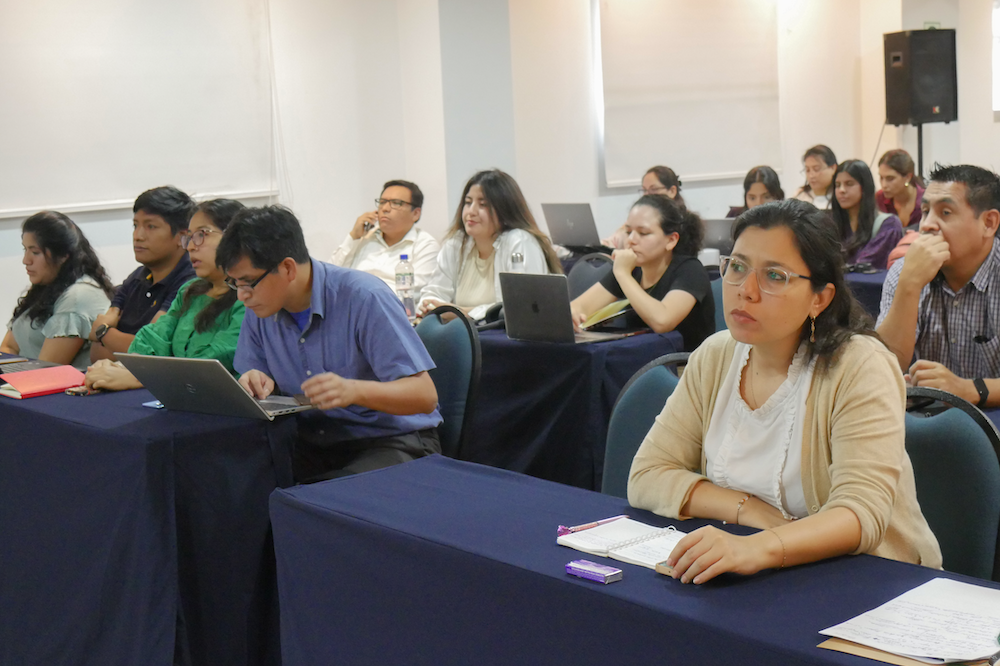Supporting Evidence-Based Policy Through Innovation: The Peru MIMP Evidence Lab
Overview
IPA has partnered with Peru's Ministry of Women and Vulnerable Populations (MIMP) to establish an Embedded Evidence Lab within the Ministry's Monitoring and Policy Evaluation Office (OMEP). The lab’s focus is on promoting data- and evidence-based policymaking, enhancing the effectiveness of programs, and developing innovative solutions to the challenges facing Peru’s women, children, adolescents, and other vulnerable populations.

| MIMP officials and IPA Peru staff. © 2024 IPA |
Context
The Ministry of Women and Vulnerable Populations (MIMP) is Peru’s state institution responsible for designing, executing, and enforcing public policies to protect the rights of women, children, the elderly, people with disabilities, and migrants. Since 2016, MIMP has collaborated with IPA to promote the use of data and evidence in policymaking. Along with other partners, IPA has conducted three Randomized Controlled Trials (RCTs) to evaluate the effectiveness of MIMP’s programs to prevent gender-based violence including a text-based information campaign, a community-based intervention called Leaders in Action, and a male-focused program called Men for Equality. In addition, IPA evaluated the pilot of the Real Men Challenge program and is currently supporting the Ministry in the process of scaling up the program based on its promising results.
These successful partnerships laid the groundwork for developing an evidence-driven culture within MIMP, culminating in the creation of the "MIMP Lab” through a resolution in December 2023. To ensure its successful establishment and operation, MIMP signed an Interinstitutional technical assistance Agreement with IPA in December 2024.
| Minister Teresa Hernández and IPA Peru Country Director Barbara Sparrow pose with the signed agreement. © 2024 MIMP |
Lab Approach
The MIMP Lab operates within the Ministry’s Monitoring and Policy Evaluation Office (OMEP), strategically positioned to influence policy decisions through reporting to the General Secretariat. OMEP is also responsible for overseeing MIMP statistics and handling the monitoring and evaluation of national policies as well as strategic plans and programs. This confers the lab the necessary legal authority to carry out its activities effectively. The lab is composed of six part-time members: two embedded staff from IPA, and four members of the OMEP team.
The lab's approach centers on a comprehensive "learning cycle" that encompasses developing a Research and Learning Agenda aligned with MIMP's core priorities (including preventing violence against children and women, and promoting gender equality), piloting innovations that generate causal evidence through impact evaluations, creating data products and evidence summaries to inform policy decisions, and providing research services to support evidence-based program improvements. The Lab will also take steps to institutionalize this process, including establishing clear team structures and roles, building ministry capacity through training and hands-on learning, improving information systems, securing sustainable financial resources, and creating supporting legal frameworks.
In its initial learning cycle, the lab has supported MIMP in identifying its key policy challenges, which will serve as the foundation for upcoming innovation projects. The lab has also conducted a comprehensive set of capacity-strengthening workshops for MIMP teams, covering fundamental topics such as innovation principles, evaluation methodologies, and theory of change development. The lab is currently designing an additional workshop series focused on the process of adapting evidence, and monitoring and learning systems. These initiatives aim to equip ministry officials with essential skills for evidence-based program improvement.
 |  |
| IPA Peru staff holding Workshops directed at MIMP officials. © 2024 IPA |
Achievements
The lab has already begun to make progress in influencing MIMP policy. First, it has influenced MIMP’s innovation planning by incorporating innovation into the official document of the Prevenir para Proteger Strategy, which aims to prevent sexual violence against children and adolescents. This inclusion strengthens the Lab’s political and financial support, enabling the execution of its first innovation projects.
Second, the lab has conducted a literature review on communication strategies for preventing sexual violence against children and adolescents. This research will serve as the evidence base for the lab’s first innovation project—a pilot communications campaign expected to launch later this year.












